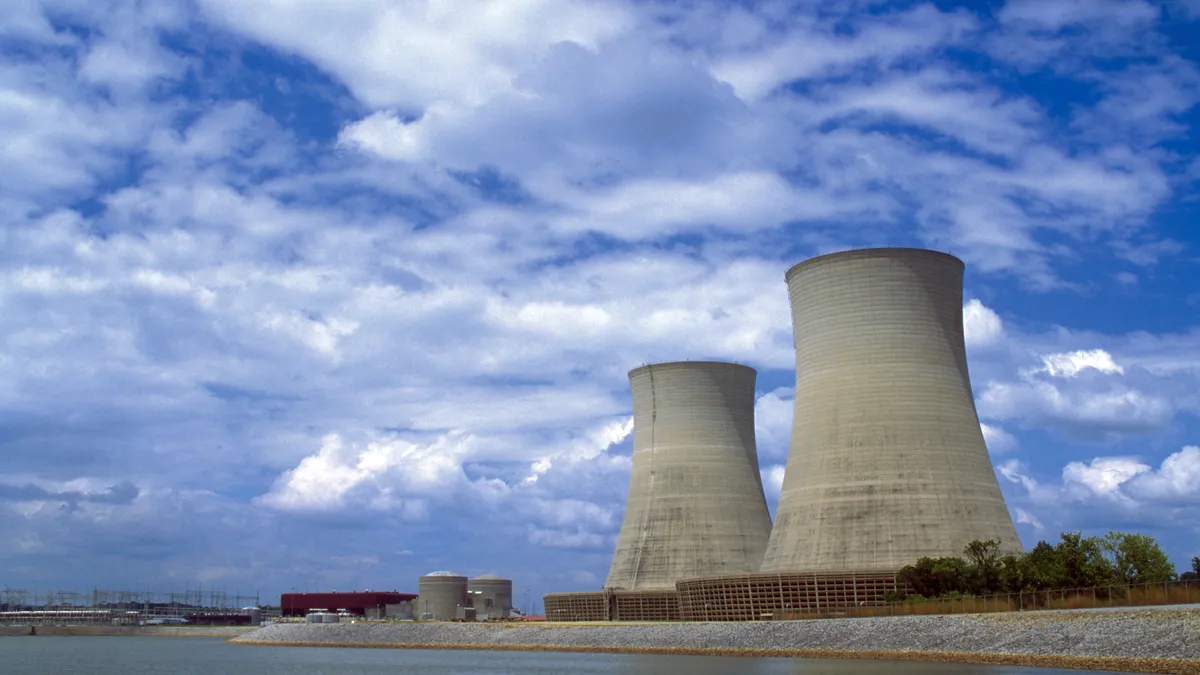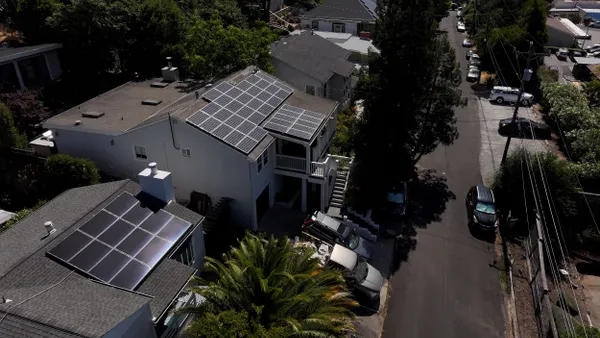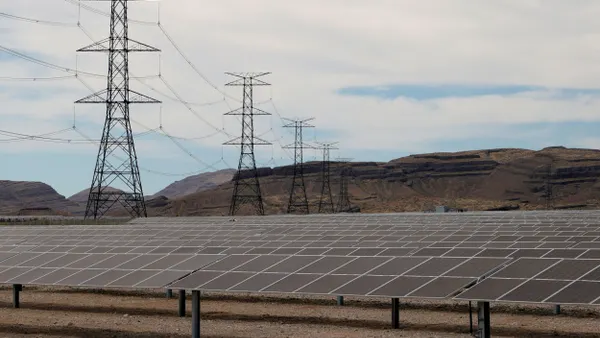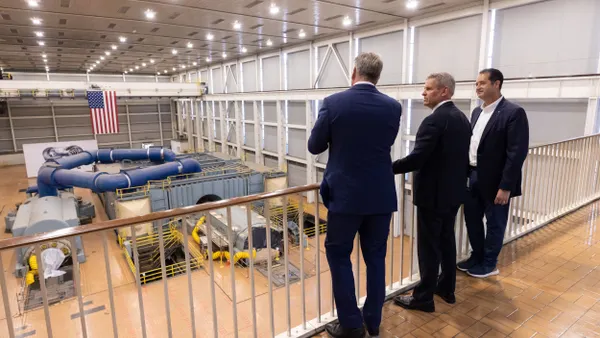Dive Brief:
- Federal Energy Regulatory Commissioner Robert Powelson said Wednesday he is "very nervous" about ISO-New England's ability to maintain electric reliability amid ambitious state renewable energy plans and the lack of a plan to ensure the "orderly entry of new resources and orderly exit of uneconomic plants."
- Powelson's remarks at an energy policy forum in Washington follow a decision by FERC to approve a proposal by the ISO to split its capacity market auctions into two parts in order to better compensate subsidized resources. Powelson issued a dissent in the 3-2 vote.
- Powelson said the ISO's approach could hurt the market's ability to ensure that the least-cost capacity resources could respond when necessary. "Without clear price signals, private investment will not respond when needed, and as a result, the market will no longer achieve what it was designed to do," he wrote in his dissent.
Dive Insight:
New England's grid operator issued a report in January outlining several worst-case scenarios should gas capacity grow.
The report concluded that heavy dependence on natural gas could result in blackouts if the grid comes under extreme stress. Renewable energy could help reduce that so-called "fuel-security risk," but also compel more fossil fuel plant retirements, compounding the need for more LNG imports.
In short, the ISO worried that subsidized resources, such as wind and solar, could push unsubsidized resources offline and hurt entry of new ones.
The two-part capacity auction proposal, dubbed Competitive Auctions with Sponsored Policy Resources (CASPR), aimed to prevent subsidized resources from depressing prices in the capacity auction.
The newly approved plan will split capacity auctions into two parts. The first would work much like today, but in the second portion, retiring resources that earn capacity supply obligations could transfer those obligations to new, subsidized resources that do not have one. The existing resource — like an old oil plant for example— would then retire and pay the subsidized resource — such as wind or solar — for meeting the obligation.
In his dissent, Powelson expressed worry that the proposal would only delay price suppression in the market and "will not be reflective of the total costs of the resources procured to meet resource adequacy requirements in ISO-NE."
Instead, the region should target infrastructure development, notably natural gas and transmission, Powelson told Utility Dive.
"Now, more than ever, the [ISO report] speaks to ... firming up baseload resources, not saying dirty baseload, and [creating] a market that we have orderly new entry and orderly exit of uneconomic resources," Powelson said. "I think in my view, the number one issue in that market is long-term reliability. And I would implore stakeholders in that region to not sidestep that issue."
Issues affecting reliability included the lack of pipeline and transmission infrastructure, Powelson said. Notably, the Northern Pass transmission project, which would ship clean energy from Canada to the New England region, has met resistance from New Hampshire regulators. The project was selected by neighboring state Massachusetts to help it meet clean energy goals.













